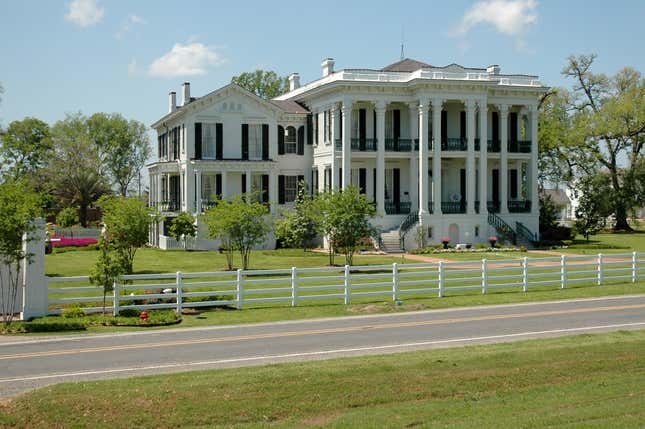
In today’s edition of white people whitepeopling, I’d like to introduce you to the Whitney Plantation in Wallace, La., where visitors are encouraged to partake in a guided tour of “the only plantation museum in Louisiana with an exclusive focus on the lives of enslaved people,” according to its website.
Yet despite its obvious premise, it would appear that there are unseasoned individuals who are less than pleased by what awaits them, as evidenced by a collection of reviews that have gone viral on Twitter. As such, we can all thank former congressional candidate Saira Rao for uncovering this treasure trove of melanin-deficient rancor.
“My husband and I were extremely disappointed in this tour,” one two-star review reads. “We didn’t come to hear a lecture on how the white people treated slaves, we came to get this history of a southern plantation and get a tour of the house and grounds. The tour guide was so radical about slave treatment we felt we were being lectured and bashed about the slavery.”
But it gets better!
“My ancestors were from Sicily, never owned slaves, and my husbands were German, and none of his ever owned slaves,” the reviewer continues. “I am by far not racist or against all Americans having equal rights but this was my vacation and now we are crossing all plantation tours off our list, it was just not what we expected. I’ll go back to Louisiana and see some real plantations that are so much more enjoyable to tour.”
Wait, what? Since when is visiting a plantation supposed to be enjoyable?
In response, Maiysha Kai, managing editor of The Glow Up, so eloquently stated: “Whatchu think a plantation is, though? And why did you want to go there, as opposed to any number of other tourist-friendly, non-genocide-laden destinations? Your husband’s folks were German; y’all ain’t check out the Holocaust monuments?”
While staff writer Anne Branigin added, “‘I am by far not a racist or against all Americans having equal rights but this was my vacation’ is maybe top four whitest things ever written.”
And if you think that review was an anomaly, guess again. Another Twitter user dug up reviews from other plantations throughout the country and found much of the same.
“There is really nothing good you can say about slavery but I felt Paul took it too far,” another reviewer wrote. “Instead of leaving the tour in the 1800s where it belonged, he went on to transfer it to the KKK, white supremacy, and the horrible killings at Mother Emanuel. [...] There are too many beautiful plantations you can visit without starting out on a bummer.”
But let’s bring it back to the reviews of Whitney Plantation, which are a goldmine of white tears and blissful ignorance.
“Our tour guide was way too political and editorial in his presentation,” wrote Kari Freeman. “He actually said that slavery was still alive today because we have incarceration. People who are incarcerated today did something wrong.”
“Would not recommend. Tour was all about how hard it was for the slaves and how hard done by they were,” wrote Matthew Cloke. “They forget how hard it was for most poor people in those days anywhere in the world. Go somewhere different if you want to experience a plantation tour.”
“In addition, what I found completely and utterly offensive about Cheryl’s presentation was her very last statement in which she said, ‘America was built on the backbone of slavery,’” wrote Juliana Irene.
Oh, and I can’t forget this gem, courtesy of one Jamie Hollingsworth:
“Very racist. If you’re white, don’t go.”
I can’t say I’m surprised by any of these. But once you realize that the people leaving these reviews are likely judges, police officers, teachers, business owners, loan officers, or occupy any number of jobs that directly affect black folks, that’s when the anxiety begins to settle in.